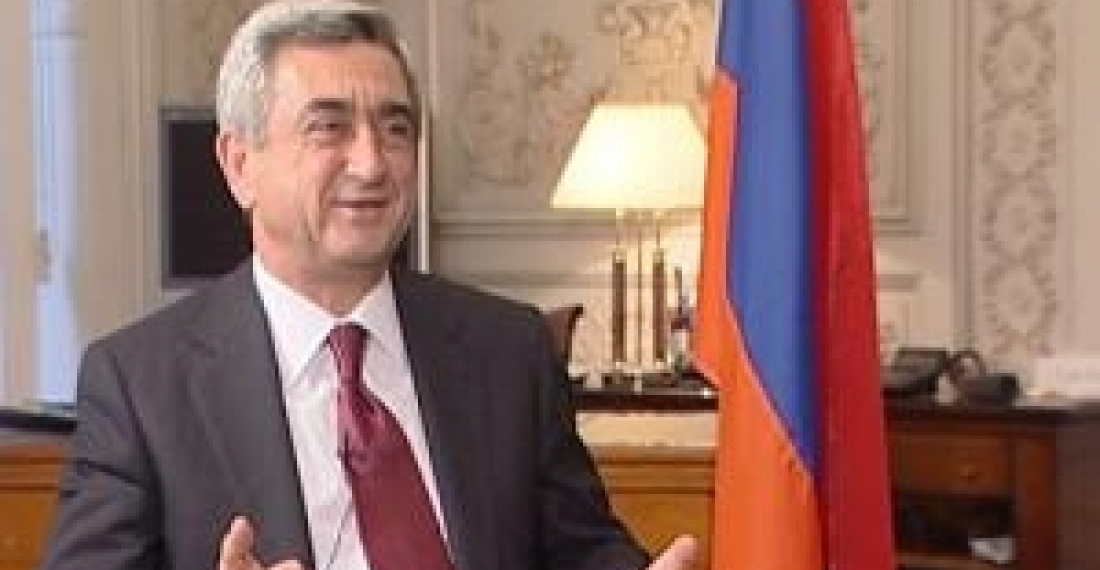Azerbaijan understands the meaning of the international law principles in its own way, President of Armenia Serzh Sargsyan said in an interview with newspaper.
"The Minsk Group has offered a document which is conditionally called the Madrid principles. It supposes settlement of the issue on the basis of three principles: non-application of force or threat of force, territorial integrity principle and peoples' right for self-determination. This document mainly gives an opportunity to continue the talks and start drawing out of a big peace treaty. Armenia strictly understands what these three principles mean, - Sargsyan said.
He also added that after long reflection the Azerbaijanis also said "yes", but they understand the principles in their own way. The leadership of Azerbaijan has been threatening on all the levels to resume battle actions. It means breaking of the first principle.
He has got an impression that in Baku they turned the principle of the territorial integrity into an absolute dogma beyond the context of the international law.
"As for the right for self-determination, they understand it only like self-determination within the frameworks of territorial integrity of Azerbaijan. There could not be such self-determination, it is truncate and primitive", - Sargsyan emphasized and added it will be very difficult to resolve the conflict until Azerbaijan understands the core of this principle.
"I think, actually we understand these principles in a different way. However, these are the principles which the world is guided by. The principles of territorial integrity and the peoples' right for self-determination allowed Azerbaijan as well as Armenia get independence. How can they be understood in a different way? It is illogical. The territorial integrity principle does not mean inviolability of borders. Otherwise, new states would not be formed, but dozens of the new states have appeared over the last 20-30 years", - President of Armenia said.
President of Armenia:
President of Armenia:







